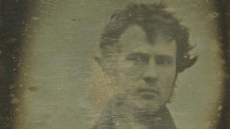NEW YORK — Starbucks is changing the terms of its rewards program so that people who spend around $5 or less per visit won't get as many freebies.
The Seattle-based coffee chain says its loyalty program will award stars based on the dollars spent starting in April. Currently, people earn a star for each transaction, regardless of how much they spend, and get a free food or item of their choice after earning 12 stars.
People will now have to earn 125 stars for a free item, with each dollar spent being worth two stars — meaning they have to spend $62.50 to get their free item. That means people who stick with options like plain coffee are losing out.
For instance, someone who regularly pays $2 for a regular drip coffee would currently earn a free item after spending around $24 over 12 visits. Under the new system, they would have to visit more than 31 times before they earn the perk.
Someone who gets a large latte for $4.45 currently spends around $53.40 over a dozen visits before getting a free item. That person would need to visit a couple extra times for the freebie with the new system.
Still, Starbucks Corp. says the change is the No. 1 request among loyalty program members and predicts it will lead to higher spending by customers eager to earn more stars.

In a call with analysts, Starbucks Chief Strategy Officer Matthew Ryan said the vast majority of customers will earn rewards at an equal or better rate with the change. Without providing details, he said a "small minority" of customers will earn rewards at a slower pace.
The change is not an opportunity to opaquely reduce the value of the program, Ryan said.
The current rewards system can also increase waiting times in store lines, Ryan said, because some people try to get additional stars by asking to ring up multiple items separately. Such instances account for 1 per cent of all transactions, he said.
The change comes as Starbucks has been pushing to get more people signed up for its My Starbucks Rewards program. Loyalty members spend three times as much as non-members, and help push up profit, according to the company.
Last month, Starbucks said it had 11.1 million loyalty program members in the U.S., up 23 per cent from the previous year.
The coming change will not benefit customers such as Vincent Fiorese, who works in construction management and spends less than $3 on a cup of coffee whenever he goes to work. But Fiorese said it wouldn't deter him from getting his coffee.
"It sucks, but what am I going to do," he said.





